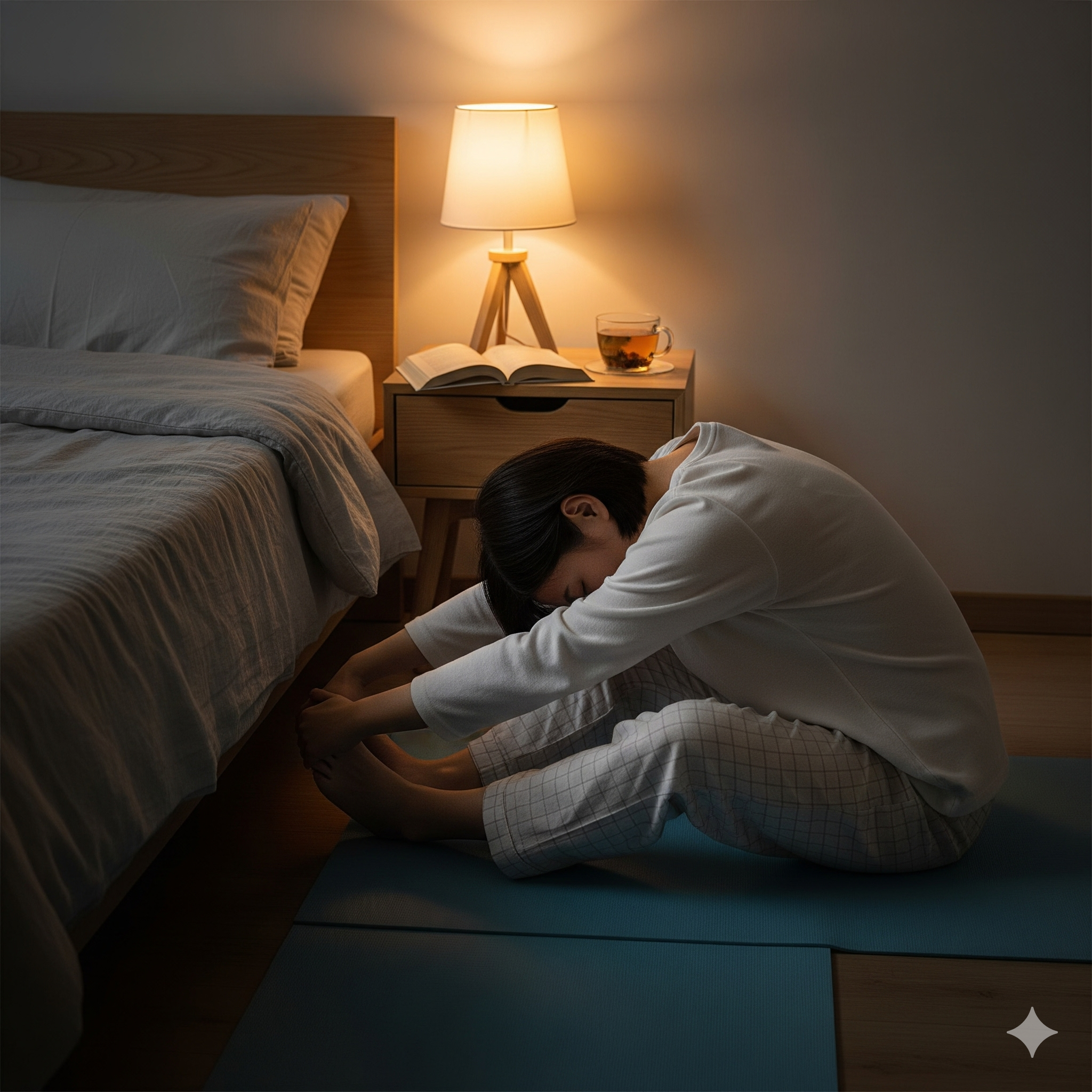Physical Address
304 North Cardinal St.
Dorchester Center, MA 02124
Physical Address
304 North Cardinal St.
Dorchester Center, MA 02124

Insomnia can be a frustrating and debilitating condition, impacting your overall health and quality of life. The inability to fall or stay asleep can lead to fatigue, irritability, and decreased productivity.
If you find yourself tossing and turning at night, incorporating gentle exercise into your bedtime routine might be the solution you need. In this guide, we’ll explore various effective exercises designed to help you sleep better and combat insomnia, paving the way for more restful nights.

Exercise is a powerful, natural tool for improving sleep quality. It helps regulate your body’s internal clock, reduces stress, and promotes deep relaxation. By engaging in regular physical activity, you can prepare your body and mind for a truly restful night.
Your body’s internal clock, or circadian rhythm, plays a crucial role in regulating your sleep-wake cycles. Exercise helps to synchronize this rhythm, making it easier to fall asleep at night and wake up refreshed in the morning. Regular physical activity reinforces your body’s natural sleep patterns.
Stress and anxiety are common culprits of insomnia. Exercise acts as a natural stress reliever by releasing endorphins, chemicals in the brain that act as natural painkillers and mood elevators. This helps to reduce stress levels, decrease anxiety, and promote a more relaxed state of mind that is conducive to sleep.
Exercise can increase the production of melatonin, the hormone that regulates sleep. Melatonin levels naturally rise in the evening to signal that it’s time to wind down. Regular exercise, especially when done outdoors, can boost melatonin production, helping you fall asleep more easily and enjoy deeper, more restorative rest.
 The Best Bedtime Exercises for Insomnia Relief
The Best Bedtime Exercises for Insomnia ReliefNot all exercises are suitable for bedtime. High-intensity workouts can stimulate your body and make it harder to fall asleep. Instead, focus on gentle, calming exercises that relax your body and mind. Here are some of the best exercises to do before bed:
Yoga is one of the best exercises for promoting relaxation and reducing stress. It combines physical movement with deep breathing and mindfulness, creating a profound sense of calm. Here are a few yoga poses that are particularly effective for sleep:
Stretching before bed can help relieve muscle tension and prepare your body for sleep. Focus on stretching major muscle groups, such as your legs, back, and shoulders. Here are some simple stretches to try:
Both Tai Chi and Qigong are traditional Chinese practices that involve slow, deliberate movements combined with deep breathing exercises. These mindful practices help to center your mind and body, reduce stress, and promote a state of tranquility perfect for preparing for sleep. and promoting relaxation. Engaging in a short Tai Chi or Qigong session before bed can create a peaceful transition from wakefulness to sleep.

Breathing exercises are a powerful way to calm your mind and body before bed. They promote relaxation
Breathing exercises are a simple yet powerful way to calm your nervous system, slow your heart rate, and reduce stress. Here are some effective techniques to incorporate into your nightly routine:
This technique is renowned for its calming effects and can help you fall asleep faster.
This exercise focuses on using your diaphragm to take deep, full breaths.
Rooted in yoga, this technique is excellent for calming the mind and balancing energy.
To get the most benefit from these exercises, consistency is key. Incorporate them into a nightly routine to signal to your body that it’s time to wind down.
Tips for a Successful Routine:
Personalize Your Routine:
Everyone’s body responds differently. Experiment with various exercises and timings to discover what helps you achieve the most restful sleep.
Research shows that regular physical activity can significantly improve sleep quality.
Incorporating gentle exercises into your bedtime routine can be a simple yet effective way to combat insomnia and improve your sleep. By practicing yoga, stretching, and breathing exercises, you’ll relax your body and mind, setting the stage for a restful night. Remember, consistency is key, and finding a personalized routine that works for you is the most important step. Sweet dreams!